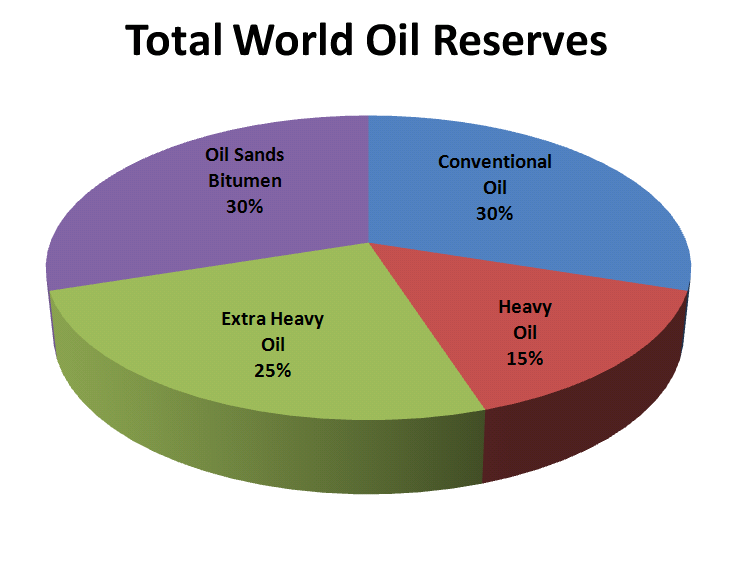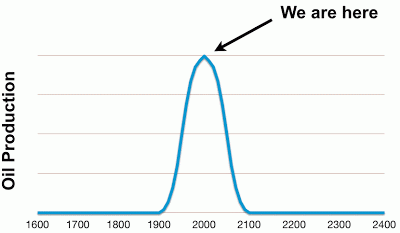Last Update: July 4, 2015

The fossil crude oil we're all accustomed to was naturally developed by the planet as geographic formations trapped biological material, cooking it into hydrocarbon deposits. Some deposits are easy to extract the crude oil, while others are very costly and difficult.
Conventional Oil === The Easy Stuff: It's called "Conventional Oil" when the crude oil deposit simply requires drilling a hole and letting the oil flow to the surface. The most desirable is the "light sweet crude" where "light" means it's low density, while "sweet" means a low sulfur content. Such crude oil requires less processing (hence expense) than other kinds of oil.
Unconventional Oil === The Hard Stuff: It's called "Unconventional Oil" when lots of work and resources are required to convert a suboptimal resource into something resembling regular crude oil. The phrase covers a wide range of sources such as oil shales, oil sands-based synthetic crudes and derivative products, coal-based liquid supplies, biomass-based liquid supplies, and gas to liquid (GTL) - liquids arising from chemical processing of gas.

Peak Oil === Ever-tighter supply constraints: The pace of oil consumption over the last 100+ years means that Conventional Oil is becoming increasingly harder to extract, and harder to find. Over the coming years we won't be able to rely on Conventional Oil, but will have to turn to harder-to-extract oil resources in the other wedges on this chart. The phrase "peak oil" refers to the ever-increasing difficulty in extracting crude oil, because the Conventional Oil is running out. What will happen as conventional oil grows scarce? Will the oil industry be able to continue financing the heavy costs required for unconventional oil sources? Will there be a global meltdown of society such as was predicted in the Mad Max movie series? (the back story was peak oil) It's our collective choice to continue fueling our society with fossil fuels or to take a different path.


